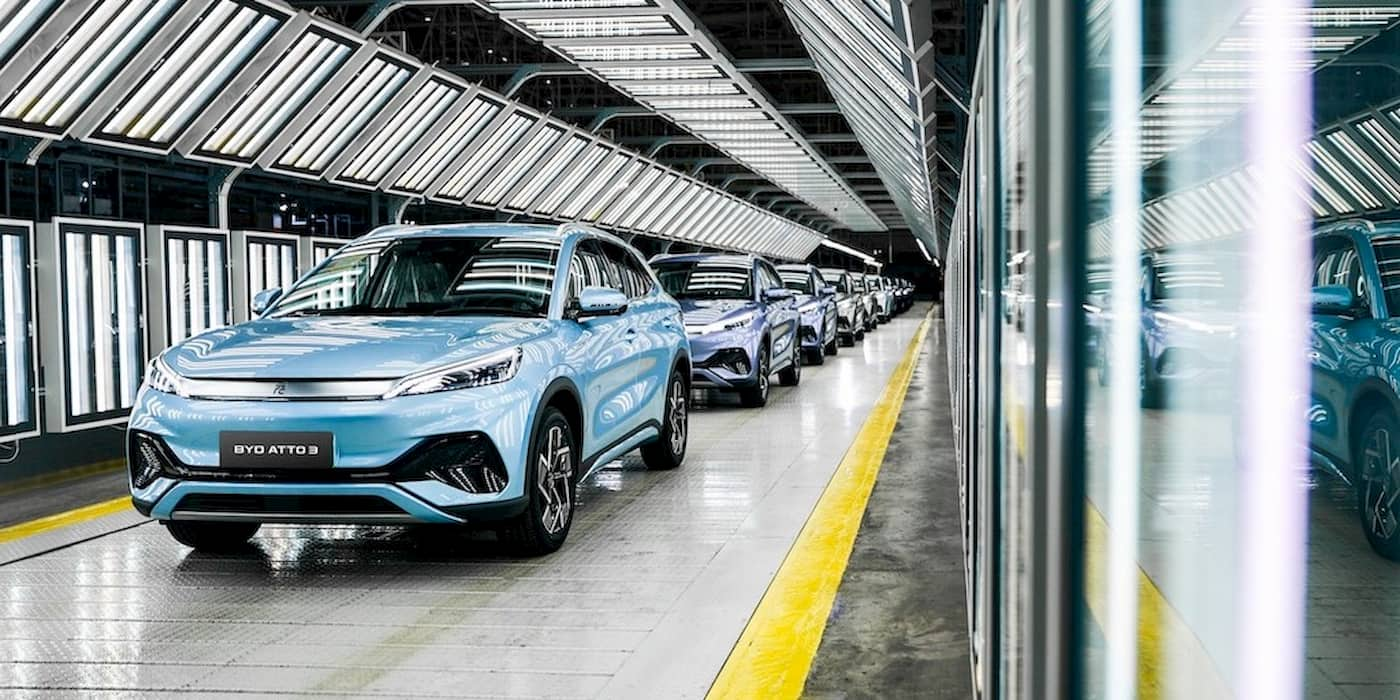
Europe and the US say that Chinese EV development is running wild and unchecked and on the verge of overwhelming the global market with, well, EVs the rest of the world can’t compete with. But now China has said it will “rein in” some of its huge EV expansion in response to criticism of “unfair” industrial and trade policies.
The Financial Times reports that the Beijing government will control “blind” construction of new EV projects happening within the country by taking “forceful measures.” What that means is anyone’s guess.
“There are also some disorderly competition behaviors,” Xin Guobin, vice-minister of industry and information technology, told the Financial Times.
China’s EV industry is a true powerhouse, and one of the few economic bright spots for the country, reports the FT. But it has come under harsh scrutiny from Europe in particular, due to subsidy policies that put Europe at a competitive disadvantage, all while being thrust into a trade war with North America and Europe.
Back in September, the EU launched an investigation into the Chinese EV industry, as European companies are struggling to compete with the cheap, high-tech Chinese imports, made by low-cost labor, entering the EU. The EU is probing into what it says are unfair subsidies and bank lending campaigns from Beijing that fueled the outsize growth in China, with fears that China is building EV plants far beyond levels needed for domestic demand. Meanwhile, the US and Europe are tightening their rules on Chinese cars and EV parts being sold in their countries, with tariffs so high in the US that China has turned its focus on other areas, namely South America, Asia, and Europe.
China last year overtook Japan as the world’s biggest car exporter – but most of those were ICE vehicles sold to Russia. Still, it’s no surprise that China-made EVs and batteries are becoming a big business outside of China, with BYD alone selling 1.6 million fully battery-electric vehicles last year, coming close to Tesla’s 1.8 million overall BEV sales. Adding up sales for all so-called new energy vehicles, including battery-only vehicles and plug-in hybrids, BYD sold 3 million vehicles in 2023.
Electrek’s Take
In China, there are more than 94 brands offering more than 300 EV models, according to Counterpoint Research, but Geely and BYD are some of the companies making the biggest impact outside of China. So reining in some of this, I’m not sure that will make much of a difference, other than to assure some good faith efforts – because for China to truly succeed as the dominant player in the world, it will need to rely on more than just a quality product alone (not to mention the fact it controls the supply chain). And momentum is already well on its way, with BYD pushing international growth with its plans to build an EV factory in Hungary, and other automakers are looking to set up production in Europe as well. Chinese companies MG, BYD, and Chery have also been scouting sites in Mexico and talking to officials for better access to the North American market, according to the Financial Times. MG is planning to build a $2 billion factory, while BYD is ramping up investments worth hundreds of millions for its own factory – actions which have set off alarm bells in Washington. Geopolitical competition – there is no way to wrap it all up in a tidy bundle, but rather this story is surely to become a lot more complex in the coming year.
FTC: We use income earning auto affiliate links. More.



Comments